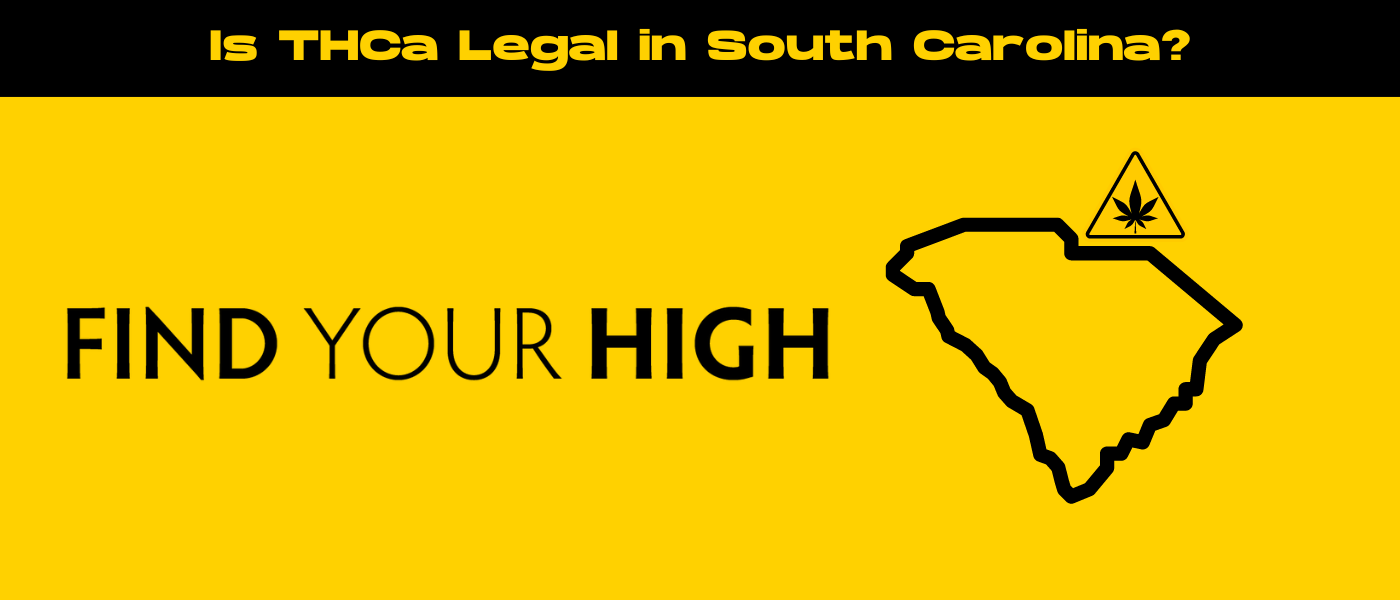As we explore the ins and outs of cannabis regulations in the U.S., we discover a patchwork of laws as varied as the nation itself. And with the wide range of laws, it makes you wonder, is THCa legal in South Carolina?
Cannabis was once universally outlawed but has since seen a wave of legislative changes that vary significantly from state to state. Among the cannabinoids under question is THCa, which is the non-psychoactive acidic precursor to THC. THCa is famous for its medicinal perks without the buzz typically associated with THC.
Found in raw, unprocessed cannabis, THCa has various uses from reducing inflammation to neuroprotection. This blog aims to tackle the complex realm of cannabis laws, focusing on the current status of THCa legality in South Carolina. Let’s begin!
Understanding THCa
THCa, or tetrahydrocannabinolic acid, is a cannabinoid found naturally in the cannabis plant, primarily in its raw and unprocessed form. It is the acidic precursor to THC, the substance known for its psychoactive effects.
Unlike THC, THCa is non-psychoactive, which means it doesn’t produce the “high” we’re all likely familiar with. However, when cannabis is heated through smoking, vaping, or cooking, THCa undergoes decarboxylation, which is a chemical reaction that removes a carboxyl group and transforms THCa into THC.
THCa naturally occurs in cannabis, particularly in fresh plants, and is believed to contribute to plant defense. However, when humans use it, THCa shows potential therapeutic benefits like anti-inflammatory and neuroprotective properties.
Studies suggest that THCa may help with a variety of conditions from reducing seizures to managing pain and even slowing down the progression of certain neurodegenerative diseases. However, since it does not affect the endocannabinoid system in the same way as THC, it doesn’t noticeably impact cognitive functions or mood when consumed in its raw form.
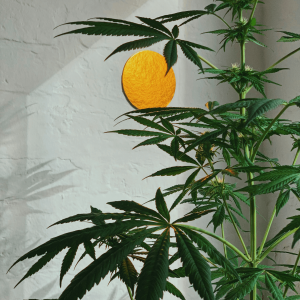
The Legal Landscape of Cannabis in South Carolina
In the complex world of cannabis rules, South Carolina stands strong against medical and recreational marijuana, with no legal use, sale, or possession allowed. In fact, the state hasn’t even fully jumped on board with the medical marijuana trend seen across numerous other states, further showcasing the strict marijuana laws in the state.
However, there is a silver lining. Current South Carolina law does allow for the use of cannabidiol (CBD) with a maximum of 0.9 percent THC content, but only for patients suffering from severe epilepsy.
Despite talks and proposals from politicians about expanding medical marijuana laws, South Carolina remains careful, lacking a full medical marijuana program. The strictness of the state’s cannabis laws means that even though THCa isn’t psychoactive, South Carolina has little tolerance for cannabinoids, subjecting cannabis-derived products to intense scrutiny.
Note: It’s worth mentioning that THCa is considered federally legal and protected under the 2018 Farm Bill.
Federal vs. State Laws
Navigating the strict cannabis laws between federal and state laws regarding cannabis is challenging.
Federally, the 2018 Farm Bill distinguishes between hemp flower, defined as cannabis with less than 0.3% THC content, and marijuana, which contains more than that amount. This bill effectively removed hemp-derived cannabinoids from the controlled substance classification, allowing for a legal distinction that seemed to favor substances like THCa.
Sale and Distribution of THCa
In South Carolina, the laws governing the sale of THCa are closely tied to the broader legal status of cannabis products within the state.
Because of the strict rules around cannabis, the sale of THCa is closely monitored. However, that doesn’t make it illegal.
Hemp companies looking to sell THCa products must navigate a complex legal framework that restricts the distribution of any cannabis-related items that contain more than 0.3% THC by dry weight.
Licensing Requirements for Distribution
Selling THCa in South Carolina is not as straightforward as selling other retail items. It requires strict adherence to state laws and regulations.
Any business or individual aiming to distribute THCa products must obtain a license from the South Carolina Department of Agriculture (SCDA). This is because the SCDA oversees the cultivation, manufacturing, and sale of hemp products, under which THCa may fall if sourced from hemp with less than 0.3% THC content.
Additionally, distributors need to make sure that the THC levels in their products follow state and federal laws. The need for thorough lab tests to confirm the THC content adds to the distributors’ duty of properly labeling and promoting their products.
All licensees are required to track their inventory and sales closely and are subject to routine inspections to ensure that they are not unintentionally operating outside of the legal boundaries.
Despite the federal legality of hemp-derived cannabinoids under the 2018 Farm Bill, navigating the mix of federal and South Carolina state laws poses challenges for businesses looking to sell THCa. Distributors in the state need to keep up with law changes and be ready to adjust to a shifting legal scene.
Cultivation of Cannabis and THCa
In South Carolina, growing cannabis to extract THCa is extremely regulated.
Under state law, it is illegal to grow marijuana without relevant licenses, which are strictly limited to those participating in the state’s industrial hemp pilot program. Potential cultivators must adhere to a stringent application process that includes compliance with the legal THC threshold.
For those who step beyond the rules, the repercussions can be harsh – from hefty fines to potential jail time. It’s crucial for anyone looking to grow cannabis for THCa extraction to understand the legal limits and the hefty consequences attached to unauthorized cultivation.
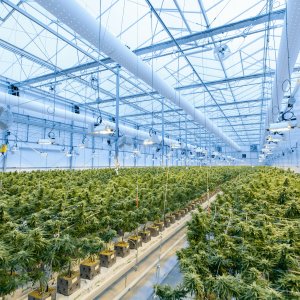
Medical Use of THCa in South Carolina
Using THCa for medical purposes in South Carolina is closely regulated as part of the state’s approach to cannabis laws. While there’s a lot of buzz around the therapeutic perks of THCa, South Carolina keeps its conservative stance on its medical cannabis program.
However, the law currently allows the use of low-THC cannabidiol (CBD), with a slight presence of THCa, for a specific medical condition.
Conditions Approved for THCa Treatment
- Severe forms of epilepsy: Individuals with severe epilepsy are the only patients eligible for treatment with cannabis-derived products containing THCa, and even then, the THC content must not exceed 0.9%.
It’s important to note that even though THCa itself is non-psychoactive, South Carolina law does not widely recognize it in medical treatment outside the context of CBD oil for severe epilepsy.
Process to Obtain Medical Cannabis That Contains THCa
- Obtain a written certification from a licensed physician in South Carolina, attesting to the patient’s qualifying condition.
- The written certification must be submitted to the South Carolina Department of Health and Environmental Control (DHEC).
- The patient or their legal guardian must then apply for a registration card through the DHEC, which allows the legal possession of CBD oil with no more than 0.9% THC by weight.
- The CBD oil must be obtained from a state-licensed source that meets all requirements for testing and labeling as established by South Carolina law.
- Regular follow-ups with the physician are recommended to ensure the treatment’s effectiveness and compliance with the legal stipulations.
Even though the potential of THCa shows promise in new studies, patients in South Carolina face challenges getting treatments with THCa due to the state’s strict medical cannabis laws. With the legal landscape continuously evolving, it remains to be seen how South Carolina will respond to future advancements in cannabis research and its potential medical uses.
Recreational Use of THCa in South Carolina
Unlike certain states that have moved to legalize cannabis for recreation, South Carolina remains steadfast in its prohibition. However, given that THCa falls under the classification of hemp products and is therefore protected under the 2018 Farm Bill, South Carolina takes a slightly different stance on THCa products.
However, we do encourage all of our customers to read up on state laws to make a decision they are most comfortable with.
Hemp-Derived vs. Marijuana-Derived THCa
Understanding the legal situation of hemp and marijuana in South Carolina can get tricky, especially with tetrahydrocannabinolic acid (THCa) in the mix.
The primary distinction hinges on the source of the THCa — whether it is derived from hemp or marijuana. In South Carolina, as in federal law, hemp is classified as a cannabis plant containing no more than 0.3% THC (tetrahydrocannabinol) by dry weight.
This key difference is super important because products from hemp, like THCa, are totally legal under the 2018 Farm Bill as long as they stay within that THC limit.
On the other hand, marijuana refers to cannabis plants that exceed the 0.3% THC limit, and marijuana-derived THCa is subject to the state’s more stringent cannabis laws, falling into the same category as other high-THC cannabis products concerning legality.
Consequently, while hemp-derived THCa products can be legally sold and possessed in South Carolina under certain conditions, marijuana-derived THCa remains illegal for both recreational and unapproved medical use.
Consumers and businesses need to understand the nuances of these definitions to ensure compliance with state regulations when dealing with THCa products.
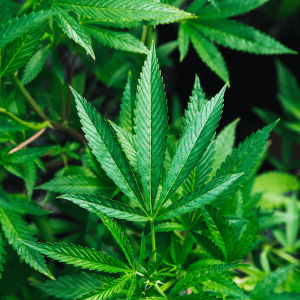
Future of THCa Legislation in South Carolina
The landscape of THCa legislation in South Carolina is at a critical juncture, with ongoing debates and legislative efforts that could hopefully reshape the future of cannabis regulation in the state.
For example, there is a growing awareness of the medical potential of THCa, which has sparked discussions among policymakers and advocacy groups pushing for an expansion of the medical cannabis program. This includes considerations for conditions beyond severe epilepsy and debates regarding the permissible THC levels in medical cannabis products.
Changes to South Carolina Cannabis Laws
Predicting precise changes in the law means factoring in various variables like public opinion, research outcomes on THCa’s medical uses, and the evolving views of lawmakers.
If the move towards more liberal cannabis policies keeps spreading nationwide, South Carolina might also adjust its laws accordingly. This could mean expanding the list of approved conditions for THCa treatment, tweaking THC limits in cannabis products, and updating the industrial hemp pilot program to allow for more THCa production.
How South Carolina Cannabis Laws Impact Businesses
For businesses in the sector and patients looking for more flexible laws, the current legislative efforts offer hope that South Carolina could move towards a more inclusive approach to THCa’s therapeutic benefits.
Nonetheless, it’s important to keep a close eye on any changes in THCa legislation to stay compliant with new legal frameworks, if they happen.
Conclusion
So, is THCa legal in South Carolina? Yes, but it’s complicated.
In summary, South Carolina’s stance on tetrahydrocannabinolic acid (THCa) is cautiously narrow, mainly allowing low-THC CBD oil for severe epilepsy under strict medical supervision.
It’s crucial for residents and visitors to understand that while hemp-derived THCa is permissible under federal law, THCa from marijuana remains illegal. The key is to stay within the legal THC threshold and procure products from state-licensed sources.
As the conversation on cannabis continues to evolve and research into THCa’s medical potential expands, laws may change. Therefore, staying informed is imperative, as adherence to the current regulations is vital for both individual and business compliance.
Public opinion, scientific exploration, and legislative review are steadily shaping the future of cannabis laws, and South Carolina may see shifts that could broaden access to cannabis for therapeutic purposes.
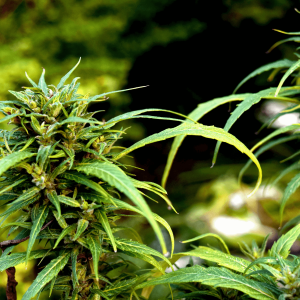
Frequently Asked Questions
1. Is THCa legal in all states?
Yes, but THCa’s legal status is complicated. THCa derived from hemp is strictly regulated from state to state. Note that while THCa is totally legal and easy to access in some states, primarily if it’s derived from hemp and complies with the federal THC limit, other states may have more strict regulations or bans regarding any form of cannabis derived from the marijuana plant.
2. Is it legal to sell THCa in South Carolina?
Yes, it is legal to sell THCa in South Carolina as long as they are hemp-derived products and contain no more than 0.3% THC by dry weight, in adherence to the 2018 Farm Bill. However, selling THCa derived from marijuana, or any product exceeding the THC threshold, is illegal.
3. Does THCa show up on a drug test?
THCa itself may not show up on most standard drug tests, which typically screen for THC, the psychoactive compound that THCa becomes when decarboxylated (exposed to heat).
However, since THCa can convert to THC in the body or during the testing process, there is potential for a positive THC result, especially if the consumed THCa is close to the legal THC limit.
4. Is Delta-9 and THCa the same thing?
No, Delta-9 and THCa are not the same. Delta-9-tetrahydrocannabinol (Delta-9-THC) is the active form of THC that is responsible for the psychoactive effects associated with marijuana.
On the other hand, THCa (tetrahydrocannabinolic acid) is a non-psychoactive precursor to THC found in raw and live cannabis plants, which becomes psychoactive THC when decarboxylated.

 Rewards
Rewards




